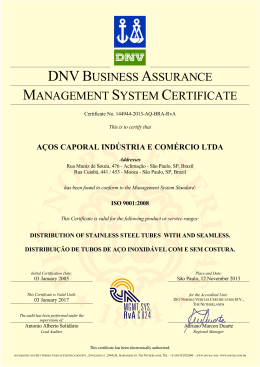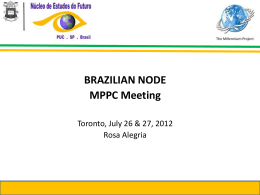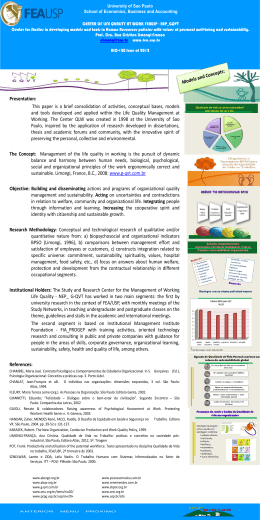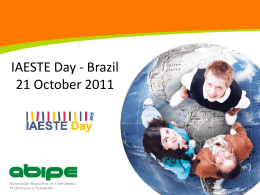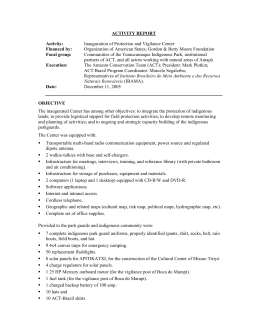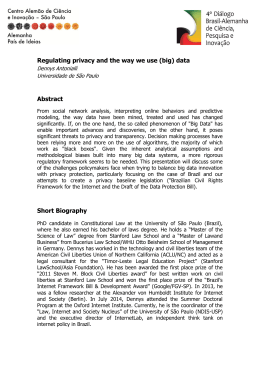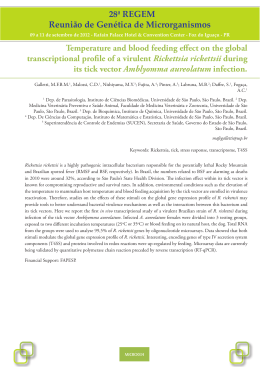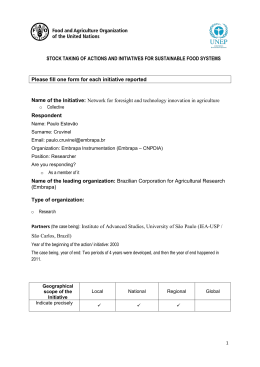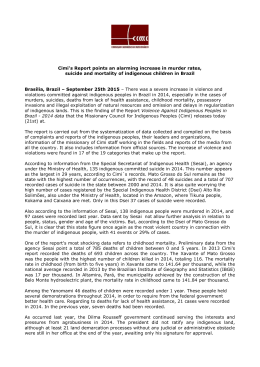Land and Food Sovereignty: Challenges for Indigenous People in São Paulo State Obtaining adequate and healthy food from land that does not provide all the means required for physical and cultural survival is a challenge faced by most villages in our state. This issue has been addressed at meetings with indigenous women held by Comissão Pró-Índio. Women of different generations from the Tenondé Porã Village, in Parelheiros, in the southern part of São Paulo City, met last Saturday, April 12, to share experiences related to traditional Guarani cooking, jointly with CPI-SP (Comissão Pró-Índio de São Paulo, or Pro-Indian Commission of São Paulo.) The meetings took place at Ms. Márcia Voty Vidal’s home. Vidal has nine children and successfully reconciles indigenous cooking traditions with eating habits gleaned from nonindigenous people’s diet. With a wide array of fruit, roots and vegetables such as cassava, sweet potatoes, maize, beans and bananas, the 43-year-old woman follows the traditional cooking rules. However, meat, salad and beans – as well as “dreaded and harmful” white rice and refined sugar – can also be found at her home, just as at any Brazilian’s. Her first-born daughter Luiza, who is 26 years old, also attended the meeting. Like many women of her generation, she does not cook traditional dishes – such as rora (maize flour mixed with spices and other ingredients) and mbyta (a type of maize cake) – as often. “I make jopara (bean and maize stew), maize with chicken and banana… We cook other things, but we can’t describe them in Portuguese. I often make xipá (a biscuit currently made from wheat flour), which we eat with coffee. But the elders know more about this.” Image: Carolina Bellinger While preparing dishes like mbeju and jopara, the women exchanged ideas about their difficulties in teaching younger people to value Guarani cooking, and the food insecurity experienced by indigenous people in São Paulo. “ Life was better and healthier in the old days. It was harder to find food, but our food was healthier, more culturally-based. Márcia Voty Vidal ” 1 This change in eating habits, often resulting from a difficulty in securing food through traditional means like hunting and fishing, has an impact on Guaranis’ health. In their Estudo dos conceitos, conhecimentos e percepções sobre segurança, insegurança alimentar e fome em quatro grupos de etnia Guarani no estado de SP [Study on the Concepts, Lore and Perceptions about Food Security and Insecurity, and Hunger in Four Guarani Groups in the State of São Paulo], conducted between 2007 and 2009, researchers from UNICAMP [Universidade Estadual de Campinas, or State University of Campinas] portrayed this situation in four villages on the coast of São Paulo State. “They’ve adopted unhealthy eating habits, such as a high consumption – mainly among children – of industrially-processed food with low nutritional value, such as soft drinks, biscuits and sweets. There are overweight and obese adult women and children under 5 years of age”. The risks of abandoning the traditional diet Endocrinologist João Paulo Botelho Vieira Filho warns that the gradual move from the traditional diet to industrialised food (sometimes provided by the Brazilian Federal Government itself), combined with the loss of the exercise provided by hunting, has been affecting the indigenous people’s health. Image: Carlos Penteado Dr. Vieira Filho, who has been studying the causes of diabetes, overweight and obesity among indigenous peoples like the Xavante (in Mato Grosso State) and the Xikrin, Suruí and Gavião (in southeastern Pará State) since the 1970s, explains that Projeto Arroz [Rice Project], carried out by FUNAI (Fundação Nacional do Índio, or Brazilian National Indian Foundation) in 1981, has led to an excessive consumption of “ CPI-SP has been discussing with Guarani women strategies to face the problems related to food insecurity ” the cereal in its refined form. Encouraged by the government, these indigenous populations introduced rice in all their meals, even breakfast, when it is eaten with sugar. After that, the doctor started observing a progressive abandonment of bean, yam, pumpkin, cassava and peanut crops, as well as forest products, such as inaja palm coconuts, roots from the Cerrado region, locusts and babassu palm coconut larvae, which are sources of protein. “We can say there’s an epidemic of diabetes among indigenous people in Brazil,” says Dr. Vieira Filho. The high prevalence of type 2 diabetes (connected with eating habits) among indigenous people results from a significant genetic factor: the ABCA1 gene, found only among native peoples from the Americas. This genetic variant is related to an increase in energy and body fat to protect the body from droughts and famine. There is an imbalance in the body when food rich in carbohydrates (which are transformed into sugar in the human body) and fat is introduced in a person’s diet. In an article published in the U.S. journal Ethnicity and Disease early this year, Dr. Vieira Filho and a team from Escola Paulista de Medicina [the São Paulo Medical School] found that 28.2% of a group of 948 Xavante from Sangradouro and São Marcos, in Mato Grosso State, had diabetes. Women accounted for 40.6% and men for 18.4% of the group. The survey also indicates that 17.5% of the population had high blood pressure and half (50.8%) was obese. Dr. Vieira Filho stresses in his report that the indigenous population has to be made aware of its genetic peculiarities. “Among the Xavante, there are indigenous schools receiving inappropriate meals from the government and teaching 2 children wrong eating habits. White populations have been selected over millennia to consume crystal sugar(…); Indians, in turn, have been selected differently, just consuming complex carbohydrates found in potatoes, maize, cassava, beans and pumpkins, so crystal sugar (sucrose) has a glycotoxic effect on their pancreatic cells, which product insulin”. Indigenous people’s food sovereignty is directly related to land ownership. Anthropologist Maria Emília Pacheco, who chairs the Brazilian Ministry of Social Development’s National Council of Food Security, says it is impossible to address the issue of food insecurity without taking into account land demarcation and ownership, as well as the overuse of pesticides. “It’s very hard to talk about indigenous people’s food sovereignty without touching on the land issue, which is a key point,” she emphasizes. In São Paulo State, land tenure is still a challenge since only 12 out of the 29 existing indigenous reservations have been demarcated and approved. The situation is made even worse by the fact that many of the indigenous reservations in the state do not provide the means for physical and cultural survival. Tiny territories, a growing population putting pressure on limited natural resources and new consumer habits are some of the factors leading to food insecurity among São Paulo State’s indigenous peoples, who have limited access to food both in quantitative and qualitative terms. The state’s indigenous people depend more and more on non-indigenous people to obtain food, and this affects their independence and sustainability. “Life was better and healthier in the old days. It was harder to find food, but our food was healthier, more culturally-based. Now we have to work to get money and survive”, explains Márcia Voty, from Tenondé Porã Village. As UNICAMP’s study points out, these populations do receive donations (food stamps), but they also buy food with money that they obtain from the sale of handcraft, wages, pensions and the Bolsa Família [Family Grant] program. In other words, they no longer grow crops, hunt or fish. However, those sources do not provide a steady supply of sufficient and good quality food. These issues have been discussed with the Tenondé Porã women at events where food is cooked jointly, which are going to take place in other villages in the state as well. “CPI-SP has been discussing with Guarani women strategies to face Image: Carlos Penteado Land and food sovereignty the problems related to food insecurity aiming at organising joint initiatives to influence public policies”, explains Carolina Bellinger, program advisor at CPI-SP. One of the demands that have emerged in the discussions is related to school meals, which the women say is one of the reasons for the Guarani’s new eating habits in that they have been leading to a change in children’s and teenagers’ food preferences. “The issue of school meals is addressed in our advocacy initiatives. We want to discuss with the state government the importance of offering better quality food and adopting traditional cooking practices at schools,” says Carolina Bellinger. The cooking meetings are sponsored by DKA-Áustria, Christian Aid and Size of Wales. by edition translation grafhic design Mônica Ribeiro e Ribeiro Bianca Pyl Cíntia Mendonça Garcia Irmãs de Criação The CPI-SP has the support of DKA-Austria Christian Aid, Size of Wales and ICCO. www.cpisp.org.br FOLLOW Pró-Índio 3
Baixar



